Filter by
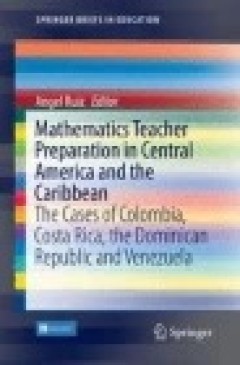
Mathematics Teacher Preparation in Central America and the Caribbean : the ca…
This Open Access book is an excellent synthesis of the initial and continuing preparation for Mathematics Teaching in Colombia, Costa Rica, Dominican Republic and Venezuela, from which comparative analyses can be made that show similarities and differences, and highlight various perspectives. In August 2012, a workshop of the Capacity and Networking Project (CANP) of the International Co…
- Edition
- -
- ISBN/ISSN
- 9783319441771
- Collation
- xvi, 86p. : ill.
- Series Title
- SpringerBriefs in Education (BRIEFSEDUCAT)
- Call Number
- 370 MAT m
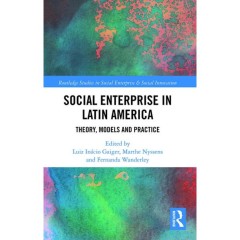
Social Enterprise in Latin America : Theory, Models and Practice
In the absence of a widely accepted and common definition of social enterprise (SE), a large research project, the "International Comparative Social Enterprise Models" (ICSEM) Project, was carried out over a five-year period; it involved more than 200 researchers from 55 countries and relied on bottom-up approaches to capture the SE phenomenon. This strategy made it possible to take into accoun…
- Edition
- -
- ISBN/ISSN
- 9780429055164
- Collation
- 330p : ill
- Series Title
- -
- Call Number
- 658.408098 SOC s
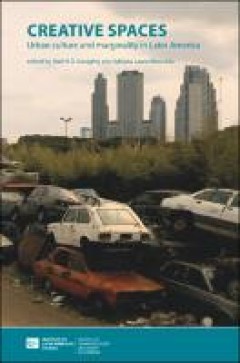
Creative spaces urban culture and marginality in latin america
Creative Spaces: Urban Culture and Marginality is an interdisciplinary exploration of the different ways in which marginal urban spaces have become privileged locations for creativity in Latin America. The essays within the collection reassess dominant theoretical notions of ‘marginality’ in the region and argue that, in contemporary society, it invariably allows for (if not leads to) the p…
- Edition
- edision 11
- ISBN/ISSN
- 9781908857699
- Collation
- vii. ;ill. ;280 p.
- Series Title
- -
- Call Number
- 307.76098. CRE n
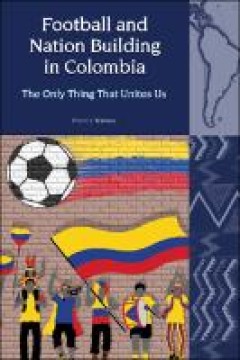
Football And Nation Building In Columbia ( 2010-2018 )
This book explores the pivotal role that football played as part of Colombian President Juan Manuel Santos’ national unity project centred on the peace process with the FARC. Football has huge political and social capital in Latin America, and has often been rhetorically deployed by governments for various ends; rarely, however, has football’s power and potential been used in such a deliber…
- Edition
- -
- ISBN/ISSN
- 9781802070491
- Collation
- -
- Series Title
- -
- Call Number
- History of sport
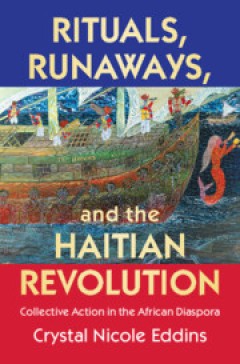
Rituals, runaways, and the Haitian Revolution : collective action in the Afri…
The Haitian Revolution was perhaps the most successful slave rebellion in modern history; it created the first and only free and independent Black nation in the Americas. This book tells the story of how enslaved Africans forcibly brought to colonial Haiti through the trans-Atlantic slave trade used their cultural and religious heritages, social networks, and labor and militaristic skills to su…
- Edition
- Edisi 2
- ISBN/ISSN
- 9781009256148
- Collation
- xiii, 355p.: ill.
- Series Title
- -
- Call Number
- 305.89607294 EDD r
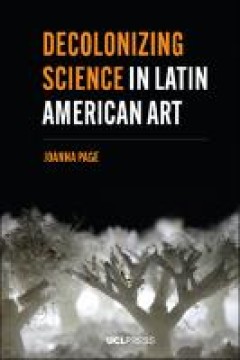
Decolonizing science in Latin American art
Projects that bring the ‘hard’ sciences into art are increasingly being exhibited in galleries and museums across the world. In a surge of publications on the subject, few focus on regions beyond Europe and the Anglophone world. Decolonizing Science in Latin American Art assembles a new corpus of art-science projects by Latin American artists, ranging from big-budget collaborations with NAS…
- Edition
- -
- ISBN/ISSN
- 9781787359765
- Collation
- xi, 288 p. : ill.
- Series Title
- -
- Call Number
- 709.8 PAG d

HUMAN CAPITAL VERSUS BASIC INCOME : ideology and models of anti-poverty progr…
Latin America underwent two major transformations during the 2000s: the widespread election of left-leaning presidents (the so-called left turn) and the diffusion of conditional cash transfer programs (CCTs)—innovative social programs that award regular stipends to poor families on the condition that their children attend school. Combining cross-national quantitative research covering the ent…
- Edition
- -
- ISBN/ISSN
- 9780472902774
- Collation
- xv, 288 p. : ill.
- Series Title
- -
- Call Number
- 130.63 BOR h
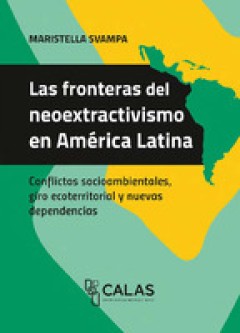
Las fronteras del neoextractivismo en américa latina : conflictos socioambie…
This book analyzes the progress of neoextractivism in Latin America through four fundamental nuclei: the first proposes the categories of neoextractivism and Consensus of Commodities as privileged windows to read the current crisis; the second analyzes the phases of neoextractivism from 2003 to the present; the third addresses the social resistance and the new political grammars from the concep…
- Edition
- -
- ISBN/ISSN
- 9783837645262
- Collation
- 144. p.
- Series Title
- -
- Call Number
- 303.6098. MAR l
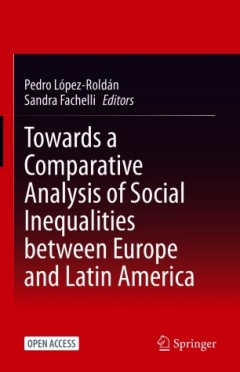
Towards a comparative analysis of social inequalities between Europe and Lati…
This open access volume identifies the common and specific aspects of social mechanisms that generate inequalities, through comparative analyses of different dimensions in which inequalities are expressed. It includes studies on social inequalities in 5 European and 5 Latin American countries, along 11 thematic axes: inequalities in the labour market and labour trajectories; asymmetries in the …
- Edition
- -
- ISBN/ISSN
- 9783030484422
- Collation
- xxiii, 480p. : ill.
- Series Title
- -
- Call Number
- 305.5 TOW t
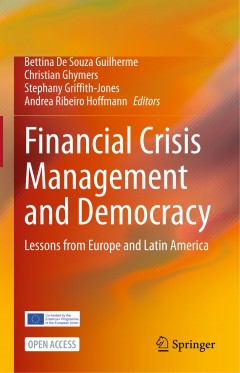
Financial crisis management and democracy : lessons from Europe and Latin Ame…
This open access book discusses financial crisis management and policy in Europe and Latin America, with a special focus on equity and democracy. Based on a three-year research project by the Jean Monnet Network, this volume takes an interdisciplinary, comparative approach, analyzing both the role and impact of the EU and regional organizations in Latin America on crisis management as well as t…
- Edition
- -
- ISBN/ISSN
- 9783030548957
- Collation
- ix, 382p. : ill.
- Series Title
- -
- Call Number
- 339 FIN f
 Computer Science, Information & General Works
Computer Science, Information & General Works  Philosophy & Psychology
Philosophy & Psychology  Religion
Religion  Social Sciences
Social Sciences  Language
Language  Pure Science
Pure Science  Applied Sciences
Applied Sciences  Art & Recreation
Art & Recreation  Literature
Literature  History & Geography
History & Geography